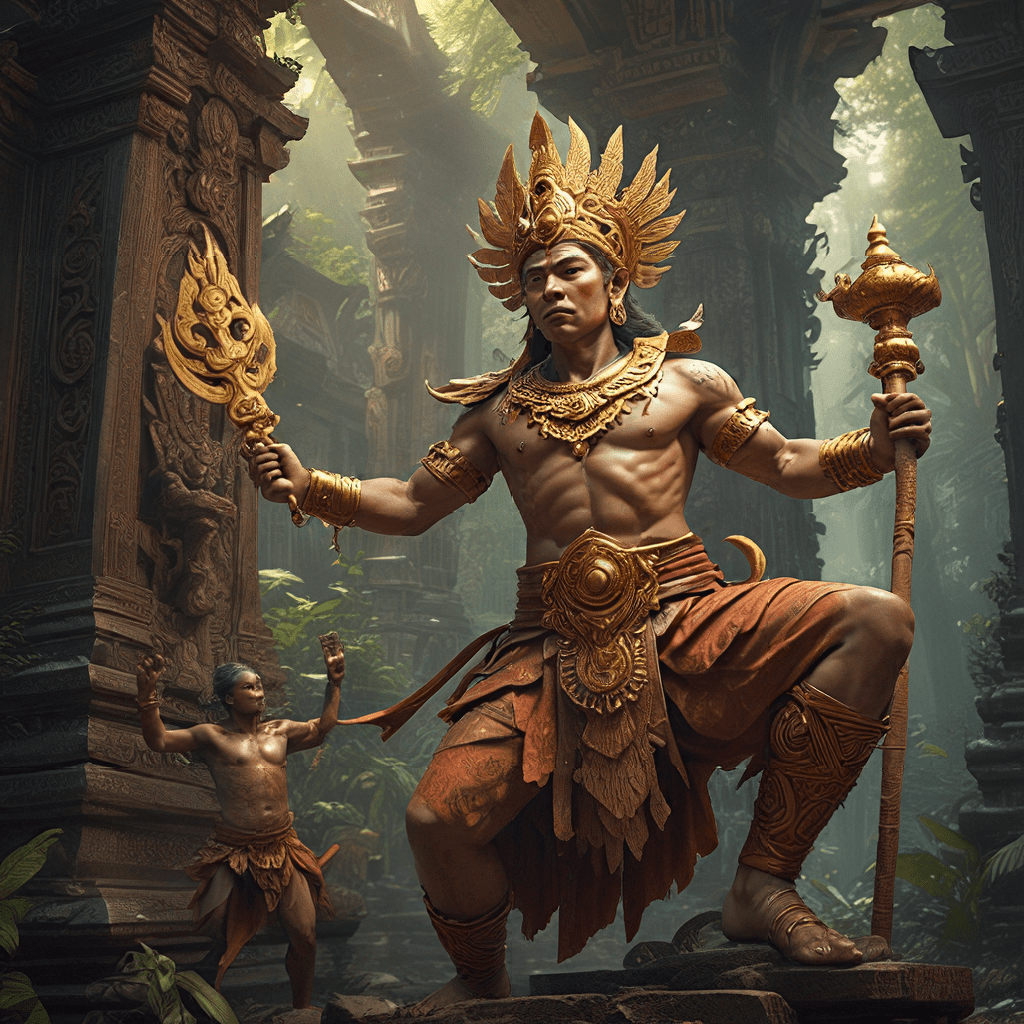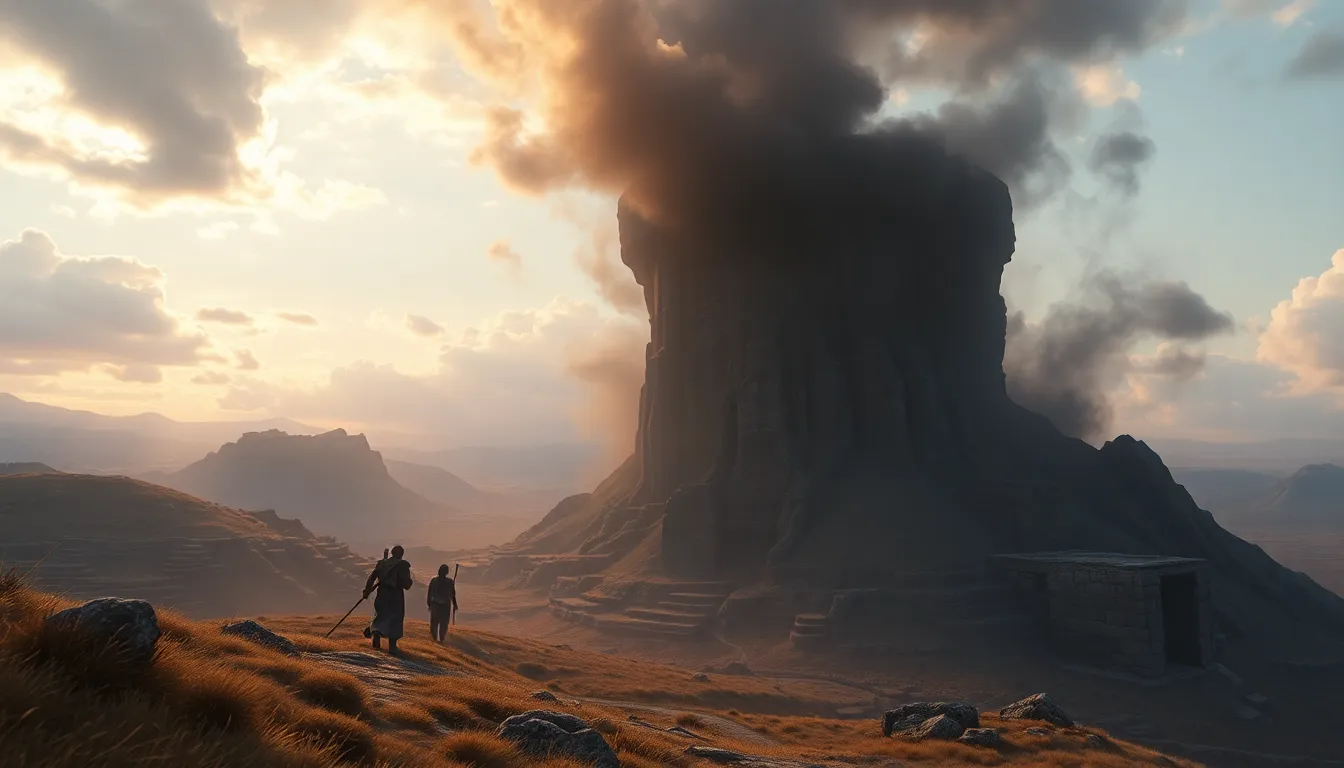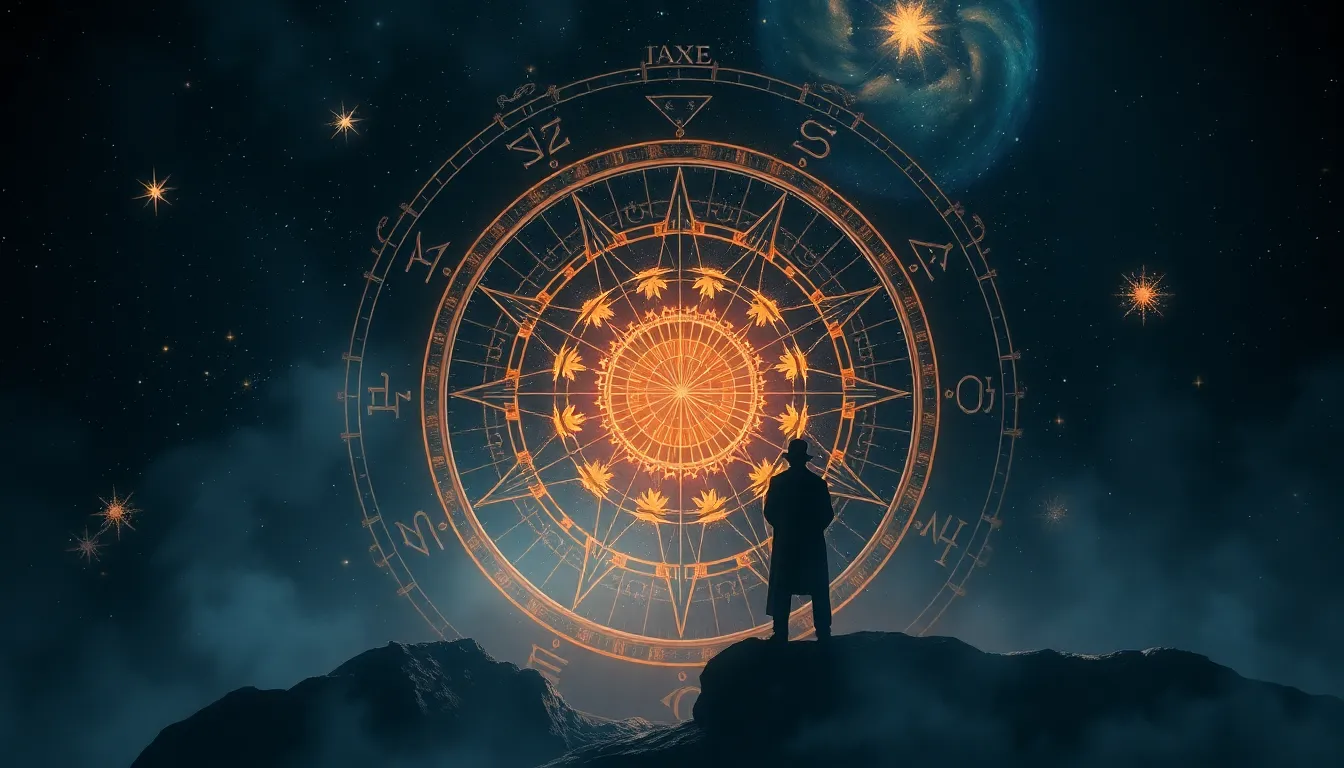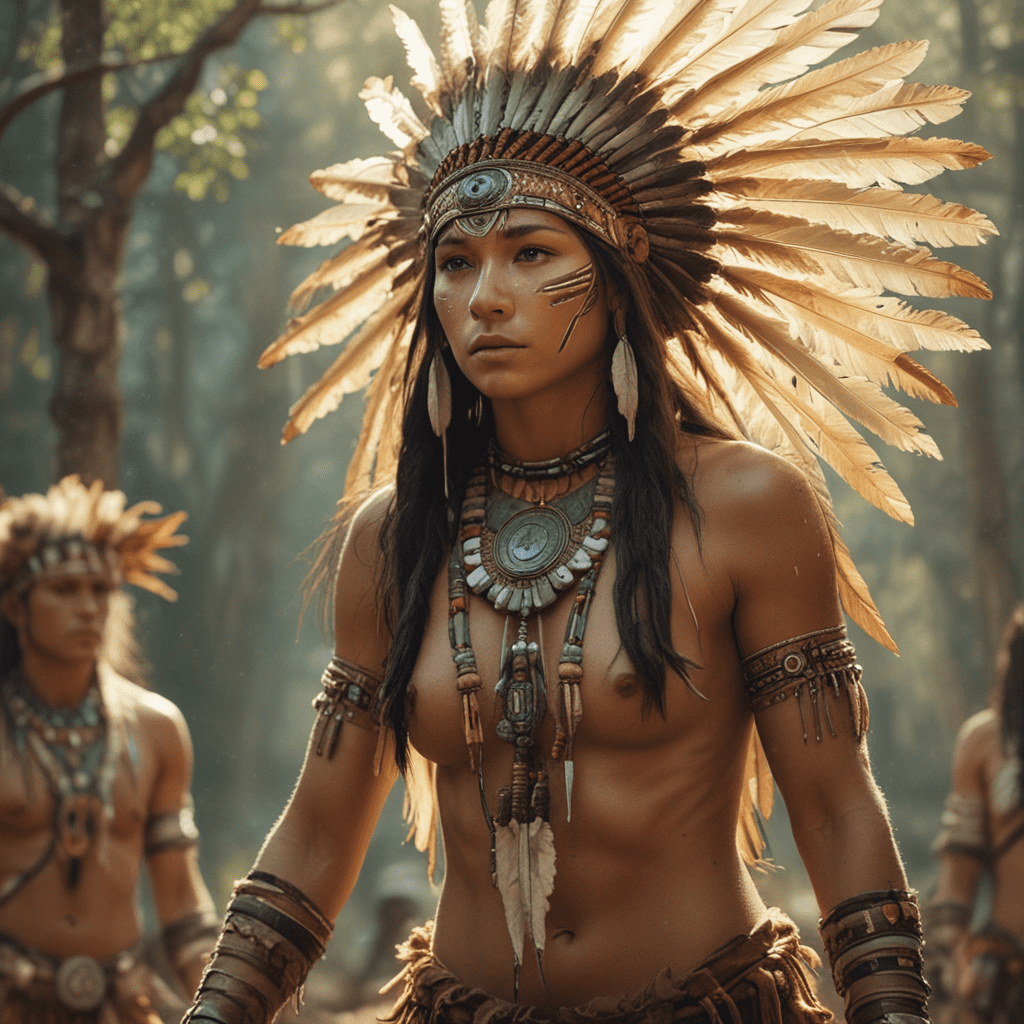Indonesian Mythology: A Tapestry of Wisdom and Knowledge
Indonesia, a vibrant archipelago with thousands of islands, boasts a rich tapestry of cultures and traditions. At the heart of this cultural wealth lies a captivating world of mythology, a treasure trove of wisdom and knowledge passed down through generations. These stories, often told through vibrant oral traditions, offer insights into the Indonesian worldview, their understanding of the cosmos, the natural world, and the human condition. They explore themes of creation, duty, power, and the importance of knowledge in navigating life's complexities.
The Cosmic Dance: Creation Myths and the Origins of Knowledge
Indonesian mythology, like many cultures worldwide, weaves intricate stories about the creation of the world and the origins of humanity. These stories often depict a grand cosmic dance, where powerful deities and mythical beings shape the world and bring forth life.
One such story, found in the mythology of the Batak people of Sumatra, tells of the creation of the world by a primordial god, Batara Guru, who created the heavens and the earth. Another prominent creation story, common among many Indonesian cultures, involves a cosmic egg, symbolizing the potential of existence. From this egg, the world and its inhabitants are born.
These creation myths are more than just entertaining tales; they offer profound lessons about the origins of life and the interconnectedness of all things. They emphasize the importance of understanding the natural world and respecting the power of the divine.
Guardians of Wisdom: The Role of Mythical Beings
Populating the vast Indonesian landscape are a cast of mythical beings, each embodying specific aspects of nature, wisdom, and power. These beings, often depicted as both benevolent and fearsome, play crucial roles in maintaining balance and order in the world.
Among these beings are the "dewa" ("gods") who preside over the cosmos and its various aspects. Some notable figures include:
- Batara Guru: The supreme god, representing wisdom, justice, and power.
- Dewi Sri: The goddess of rice and agriculture, symbolizing fertility and prosperity.
- Sang Hyang Widhi: The supreme deity in Balinese Hinduism, representing the ultimate source of creation.
Besides the "dewa", other mythical creatures populate Indonesian mythology, each with its own unique qualities and roles. For example:
- Naga: Serpent-like creatures, often associated with water, power, and wisdom.
- Kijang: Magical deer, representing grace, speed, and spiritual connection.
- Garuda: A giant bird-like creature, symbolizing strength, courage, and the divine.
These mythical creatures serve as powerful metaphors, reflecting the diverse forces of nature and the spiritual world. They act as guardians of knowledge and wisdom, reminding people of the interconnectedness of the cosmos and the importance of respecting its delicate balance.
The Power of Words and Language: Mythical Tales of Eloquence and Communication
In Indonesian mythology, language plays a powerful role, shaping reality and connecting humans to the divine. The power of words is often depicted in myths about the creation of language and the use of magic spells.
One captivating myth tells the story of Sang Hyang Wenang, a powerful deity who created the first language, "bahasa", granting humans the ability to communicate and comprehend the world around them. This myth highlights the importance of language as a tool for understanding and expressing oneself, connecting with others, and shaping the world.
Another potent example is the myth of "mantra", powerful incantations used by priests and healers to invoke divine forces for healing, protection, and guidance. These spells demonstrate how language can be used to tap into the unseen forces of the cosmos, influencing the physical and spiritual realms.
The Search for Enlightenment: Legends of Spiritual Journeys and Self-Discovery
Indonesian mythology is filled with tales of individuals who embark on spiritual journeys, seeking enlightenment and a deeper understanding of themselves and the world. These journeys often involve overcoming challenges, facing inner demons, and acquiring valuable knowledge through trials and tribulations.
One prominent example is the story of "Pangeran Diponegoro", a Javanese prince who led a rebellion against Dutch colonial rule in the 19th century. While the story is steeped in historical context, it also embodies the theme of a spiritual quest, with Diponegoro displaying remarkable courage, wisdom, and resilience in the face of adversity.
Another captivating tale is the story of "Sangkuriang", which tells the story of a young man who unwittingly kills his own mother, the beautiful goddess Dayang Sumbi. This myth highlights the themes of loss, regret, and the consequences of uncontrolled anger. The story's conclusion, with Sangkuriang attempting to dam up a river, leaving a crater now known as the Bandung Basin, serves as a reminder of the destructive nature of unchecked emotions and the importance of self-control.
The Importance of Knowledge and its Acquisition: Mythical Tales of Learning and Mastery
In Indonesian mythology, the pursuit of knowledge is often portrayed as a noble and rewarding endeavor. Stories abound of individuals who dedicate themselves to learning, acquiring wisdom, and mastering specific skills. These tales emphasize the importance of acquiring knowledge through dedication, perseverance, and the guidance of mentors.
One captivating example is the myth of "Gatotkaca", a legendary warrior in the Javanese epic Mahabharata. Gatotkaca is renowned for his immense strength, invulnerability, and mastery of various martial arts techniques. He acquired these skills through rigorous training under the guidance of his father, Bima, a well-known warrior. His journey highlights the importance of mentorship, discipline, and the pursuit of mastery.
Another compelling story is the myth of "Sang Hyang Ismaya," a powerful deity who resides in the mountains. Sang Hyang Ismaya is associated with knowledge of medicine, healing, and the secrets of the natural world. He shares his wisdom with those who demonstrate a sincere desire to learn and a commitment to using their knowledge for good. This myth emphasizes the importance of humility, seeking guidance from those with greater knowledge, and applying what you learn to benefit others.
The Nature of Knowledge and its Limits: Mythical Tales of Understanding the World
Indonesian mythology explores the nature of knowledge and its inherent limitations, acknowledging that while knowledge is essential, it cannot fully comprehend the complexities of the world. Stories often highlight the dangers of arrogance and the importance of recognizing the limitations of human understanding.
One such story is the myth of "Si Malin Kundang," a young man who leaves his poor mother to seek fortune at sea. Upon returning home as a wealthy merchant, he denies his mother, showcasing his arrogance and self-importance. His mother curses him, transforming him into stone as a reminder of the consequences of forgetting one's roots and the importance of humility.
Another revealing story is the myth of "Ratu Kidul", the Queen of the Southern Sea, a powerful and enigmatic figure associated with the ocean's mysteries and the unpredictable nature of the natural world. Despite her immense power, Ratu Kidul is often depicted as melancholic, suggesting that even those who possess great knowledge and power are subject to the limitations of human existence.
The Dangers of Knowledge: Mythical Tales of Misuse and Hubris
Indonesian mythology also cautions against the misuse of knowledge and the dangers of hubris. Stories often warn of the consequences of seeking forbidden knowledge or using it for selfish purposes.
One such story is the myth of "Bujangga Manik," a young man who seeks knowledge and travels to various sacred sites. While he gains valuable knowledge, he becomes overly focused on acquiring power and fails to recognize the importance of humility and compassion. His arrogance ultimately leads him astray, reminding us that knowledge without balance and wisdom can be destructive.
Another powerful story is the myth of "Jaka Tarub," a young man who discovers a magical garment belonging to seven celestial nymphs. He uses this knowledge to gain wealth and power, but his abuse of power and betrayal lead to consequences. This myth highlights the dangers of using knowledge for personal gain and the importance of respecting the boundaries of the divine.
The Transmission of Knowledge: Mythical Tales of Storytelling and Oral Tradition
Indonesian mythology is deeply intertwined with oral traditions, with stories being passed down through generations through storytelling, songs, dance, and puppetry. These traditions serve as a vital means of transmitting knowledge, values, and cultural identity.
One such example is the "Wayang Kulit," a shadow puppet performance that depicts stories from the Javanese epic Mahabharata. Wayang Kulit is not just entertainment; it's a powerful tool for sharing wisdom, illustrating moral values, and connecting with the spiritual world.
Another element of oral tradition is the use of proverbs, or "peribahasa", which encapsulate cultural values and offer guidance for navigating life's challenges. These proverbs are passed down through generations, serving as a concise and memorable way to convey knowledge and wisdom.
The Enduring Legacy of Indonesian Mythology: Wisdom and Knowledge for Today
Indonesian mythology continues to hold relevance in modern times, offering valuable insights into the human condition and reminding us of the timeless wisdom embedded within these ancient stories. The themes of creation, duty, responsibility, and the pursuit of knowledge remain relevant in today’s world.
The stories of mythical beings and their actions offer a metaphor for understanding the complexities of the natural world, the forces of nature, and the delicate balance of the cosmos.
By understanding and appreciating Indonesian mythology, we gain a deeper understanding of Indonesian culture, its values, and its enduring legacy.
FAQ
Q: What are some of the most important Indonesian myths?
A: Some of the most important Indonesian myths include stories like the creation myths, tales of Batara Guru and Dewi Sri, the myth of Sangkuriang, and the epic Mahabharata, which is adapted into various Indonesian shadow puppet performances.
Q: What is the significance of the "dewa" in Indonesian mythology?
**A: **The "dewa" are deities who represent various aspects of nature, power, and wisdom. They are seen as guardians of the cosmos and protectors of humanity.
Q: What role does language play in Indonesian mythology?
A: Language is seen as a powerful tool for shaping reality, connecting with the divine, and expressing oneself. Myths about the creation of language and the use of powerful incantations highlight the importance of communication in understanding the world.
Q: How does Indonesian mythology reflect the culture and values of the people?
A: Indonesian mythology reflects the cultural values of respect for the natural world, the importance of family and community, the pursuit of knowledge, and the interconnectedness of all things.
Q: What is the importance of storytelling in Indonesian culture?
A: Storytelling is a vital means of transmitting knowledge and cultural values, maintaining cultural identity, and connecting with the spiritual world. Oral traditions like Wayang Kulit and the use of proverbs are essential elements of Indonesian cultural heritage.




